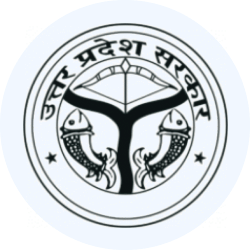UPPSC (UP) Exam > UPPSC (UP) Videos > Course for UPPSC Preparation > Geography vocabulary - 1
Geography vocabulary - 1 Video Lecture | Course for UPPSC Preparation - UPPSC (UP)
FAQs on Geography vocabulary - 1 Video Lecture - Course for UPPSC Preparation - UPPSC (UP)
| 1. What is geography? |  |
Ans. Geography is the study of the Earth's physical features, climate, and the relationships between people and their environment. It examines how natural and human factors shape the Earth's surface, including the distribution of landforms, climate patterns, and the ways in which people interact with and impact their surroundings.
| 2. What are the different branches of geography? |  |
Ans. There are several branches of geography, including physical geography, human geography, and environmental geography. Physical geography focuses on the Earth's physical features such as landforms, climate, and ecosystems. Human geography studies the spatial distribution of human populations, their cultures, economies, and interactions. Environmental geography examines how human activities impact the environment and how the environment, in turn, influences human societies.
| 3. How does geography help us understand the world? |  |
Ans. Geography helps us understand the world by providing insights into the Earth's physical processes, human activities, and their interactions. It helps us understand why certain places have unique characteristics, such as climate, landforms, and natural resources. Additionally, geography helps explain patterns of population distribution, cultural diversity, economic activities, and political boundaries. It also helps us understand how human actions impact the environment and how the environment, in turn, influences human societies.
| 4. What are the major tools and techniques used in geography? |  |
Ans. Geographers use several tools and techniques to study the Earth's features and processes. These include maps, satellite imagery, Geographic Information Systems (GIS), Global Positioning Systems (GPS), aerial photography, remote sensing, and field surveys. Maps help geographers visualize and analyze spatial data, while satellite imagery and aerial photography provide detailed views of the Earth's surface. GIS and GPS technologies allow for the collection, storage, analysis, and visualization of geographic data, while remote sensing helps gather information about the Earth's surface without direct physical contact. Field surveys involve collecting data on-site through observations, measurements, and interviews.
| 5. How does geography contribute to solving global issues? |  |
Ans. Geography contributes to solving global issues by providing a spatial perspective and understanding of the interconnectedness between humans and the environment. It helps identify and analyze the causes and impacts of various global challenges such as climate change, resource depletion, population growth, urbanization, and inequality. By studying the distribution and patterns of these issues, geographers can propose strategies for sustainable development, conservation, disaster management, and social justice. Geography also plays a crucial role in informing policymakers, planners, and organizations in making informed decisions to address these global issues effectively.
Related Searches



















